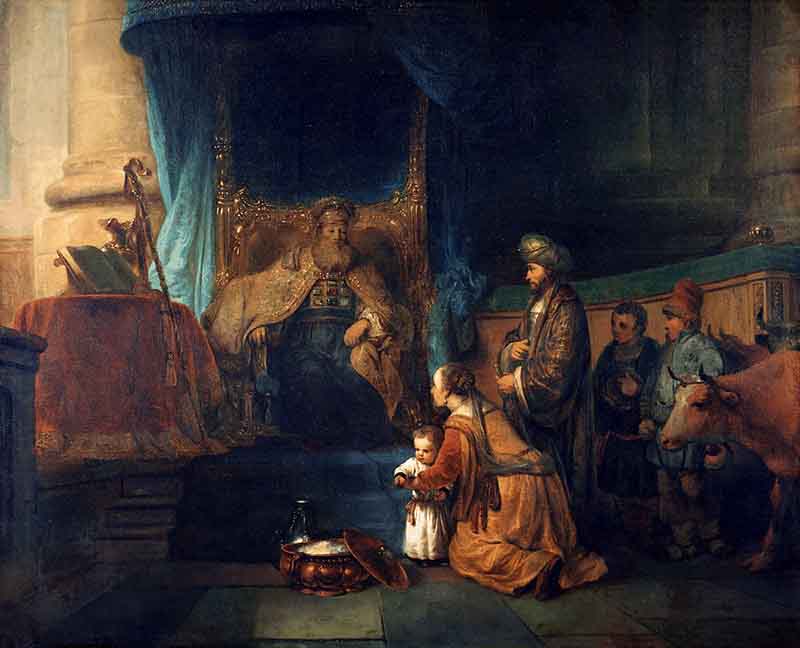The Life of Samuel
Carousel of images for this Bible Exhibit
Listen to this Bible Exhibit
Samuel, which means “name of God,” was an eleventh-century B.C. prophet regarded as the last of the judges to rule Israel. Born into the Levite family of Elkanah and Hannah, his birth was God’s answer to his mother’s prayer for a son. Hannah had promised to dedicate her son as a Nazirite, so she brought him to Eli, a priest at Shiloh, after weaning him.
Under Eli’s supervision, Samuel served God at the Shiloh sanctuary. Even though God rarely spoke in the days of the judges, he frequently talked to Samuel, whose reputation spread through Israel 1 Samuel 3:19–21. God called Samuel to prophesy judgment against the house of Eli for the wickedness of the priest’s sons and called the people of Israel to repent and put aside their idolatry.
Twenty years after the tremendous Israelite defeat at Aphek and the loss of the ark of the covenant to the Philistines, God used Samuel to restore Israel. He served as a judge, mustering the tribes, renewing the covenant with God, and delivering Israel from the Philistines at Mizpah. He judged Israel all the days of his life from his home in Ramah, each year administering justice within the circuit encompassing Bethel, Gilgal, and Mizpah 1 Samuel 7:1–17.
Samuel’s most significant contribution was his role in establishing the Israelite monarchy. In his old age, he appointed his sons Joel and Abijah as judges, but like Eli’s sons, they became corrupt, taking bribes and perverting justice. This failure and the desire for a king to lead them into battle prompted the elders of Israel to petition the prophet for a king like all the nations. Although Samuel disapproved, he heeded the command of God and granted their request, anointing Saul as king. Continuing to chasten the people regarding the dangers of the monarchy, Samuel recorded the rights and duties of the king and placed them before the Lord 1 Samuel 8:1–22. When King Saul usurped Samuel’s role as a prophet and disobeyed the word of the Lord, God instructed Samuel to reject Saul’s kingship and to anoint David to be Saul’s successor.
Samuel recalled his steadfast example in his farewell address and admonished the people to serve the Lord faithfully. He warned them of the pending disaster if they pursued evil ways. Samuel retired to his home at Ramah, where he died and was buried during Saul’s persecution of David. Later generations held him in the highest esteem as an intercessor, second only to Moses as God’s beloved Jeremiah 15:1. During Samuel’s lifetime, Israel changed from a collection of tribes ruled by various temporary judges to a nation ruled by a king. Samuel acted as a faithful judge, prophet, and priest, foreshadowing the work of Christ as prophet, priest, and king.







